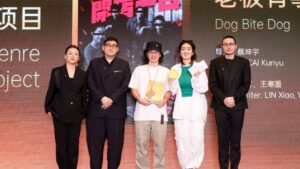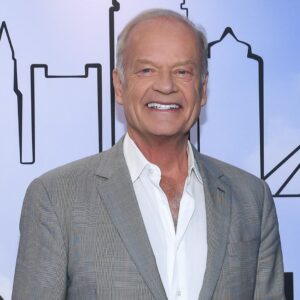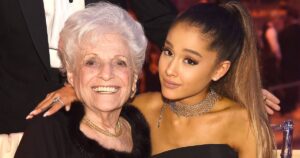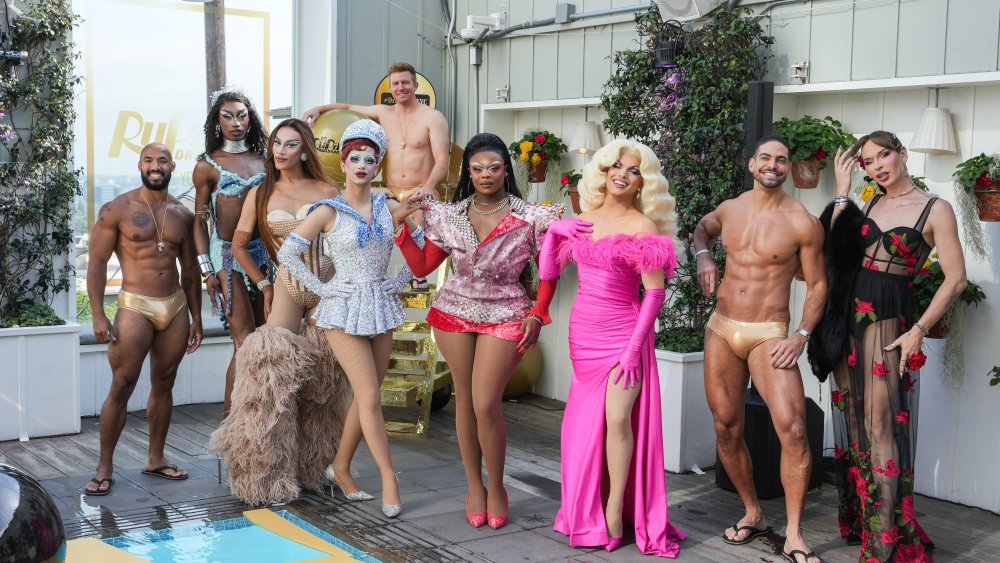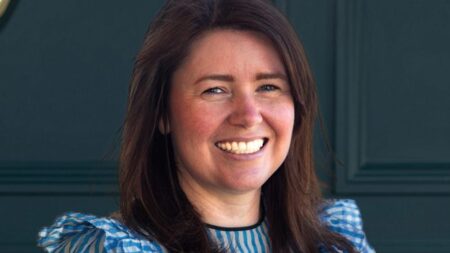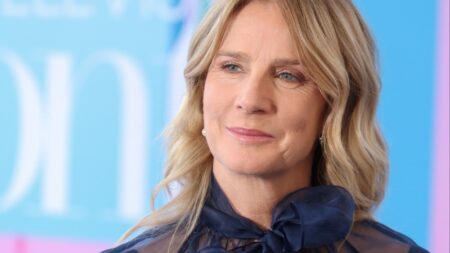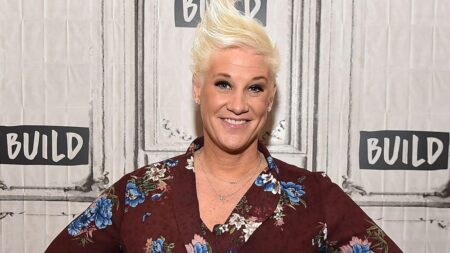“RuPaul’s Drag Race” executive producer and World of Wonder co-founder Fenton Bailey is still giddy over the cold open of Season 17’s sketch “The Squirrel Game.”
“It’s better than drugs. It’s better than sex. It’s the best thing ever,” Bailey laughs. In a play on “Squid Games,” the first 10 minutes of the reality competition series opened with the drag queens and the show’s alumni being thrust into “Ru Light, Green Light,” each having to serve their best moves when the beat drops. The losers get creamed.
It was a brilliantly executed idea from a seasoned team who continue to bring their A-game to the franchise and elevate the viewing experience.
And that was just the opener.
The season ended with a guest appearance by Liza Minnelli, who received the show’s Giving Us Lifetime Achievement Award.
At a time when DEI initiatives are being pulled back and LGBTQ+ rights are under attack, “Drag Race” remains as important as ever, bringing hope, a sense of community and ultimately, entertainment to audiences. The team never forgets its purpose in reminding viewers that drag is not going anywhere. Co-executive producer and World of Wonder co-founder Randy Barbato echoes that the team “understands the value of what we do during times of darkness, and it’s like we’re all reporting for duty.”
What was it like to have Liza close the show out?
Randy Barbato: When you think of who the perfect exclamation mark at the end of a phenomenal season would be, it would be Liza Minnelli and boy, did she deliver. It was special because her brother Joey Luft and Michael Feinstein were there; it felt like a family affair. And I felt like she understands
the community and the importance of showing up right now. It was meaningful and fun.
Fenton Bailey: Now, here I am just to say, fuck! She’s a living legend. There is no one greater than Liza. I just saw that Masterpiece PBS documentary about her, and it was great — Liza is having a moment.
MTV
How do you keep “Drag Race” fresh and elevated?
Barbato: Every year, we challenge ourselves to elevate the production and to reinvent ourselves. “Drag Race” is a production and we’re endlessly trying to outdo ourselves and work it. We started by redesigning and elevating the stage. Across the board, we push ourselves to deliver the kind of spectacle as if we were a competitor on “Drag Race.”
Bailey: This is an incredibly seasoned team with many who have been working on the show for many years and that is a singular advantage, because everybody loves the show and brings their best.
The queens were young this season, but they brought so much to the show and delivered. What has it been like seeing that?
Barbato: In some ways, it’s the season of the TikTok generation. The queens are raw, unedited and unfiltered. I think that helped remind people of the authenticity of “Drag Race,” and what’s at the heart of it, which is these human stories. The cast did not hold back, and the audience was starving for it and loved it.
Drag has always been a political statement, but here we are, in this political climate with LGBTQ+ rights under attack. What is it like delivering this show in today’s America?
Barbato: It’s a call of duty for us. America needs “Drag Race.” We need to deliver. Ru and the amazingly brilliant production team who’ve been working for decades all understand the value of what we do during times of darkness, and it’s like we’re all reporting for duty. I’m on set right now, and our sleeves are rolled up. We are in the trenches delivering joy.
Has the number of people auditioning been impacted by where we are in the world?
Barbato: We had a 30% increase in auditions. There’s been growth every single year since the franchise started.
This current season had a lot of young queens, and that wasn’t a reflection of the demo; it reflected who we wanted to cast and who popped. But I can tell you the growth is expanding on both ends, with younger and older queens, more of both are auditioning for “Drag Race.”
Bailey: I think drag is the perfect medium for these times. Drag doesn’t necessarily have to be didactically political. It fundamentally is political. It inherently is resistance, and at a time when people are trying to repress things. The natural reaction is, no, we’re not going to be repressed, because this is America. This is a country that stands for freedom of expression and individuality, and challenges to that are never going to be met, as it were, lying down. I think drag is the tip of the spear in terms of presenting resistance to that.
What is next for the franchise?
Bailey: Things are happening, but they can’t be revealed yet.
I read that you wanted to do Broadway. What would “Drag Race” on Broadway look like?
Barbato: “Drag Race: Live” just celebrated its 1000th show [in Vegas], and we are taking that and developing it for stage, ideally Broadway and London. We were thinking about starting in the West End, but fuck it, let’s just go to Broadway.
Bailey: I guess it’s no secret, there’s an untitled “Drag Race” movie coming! It’s shooting in Los Angeles; we’re keeping it local.
Why do you think that the fan base is so loyal season after season?
Bailey: I think, partly, it isn’t just a show you watch; it’s a show you participate in. The fans of “Drag Race” are super-duper important. They’re not just viewing figures by any means at all. They are so key to the show’s success.
Barbato: Ru has said this so many times: The show is about the tenacity of the human spirit. People come for the sequins, mirrors and the glam, but they stay for the heart and that connection to the heart. And they see themselves reflected in these amazing queens. It’s the beginning of a connection with these queens. They go on, and they meet people with whom they can connect for life.

Randy Barbato and Fenton Bailey
MATHU ANDERSEN
Read the full article here
